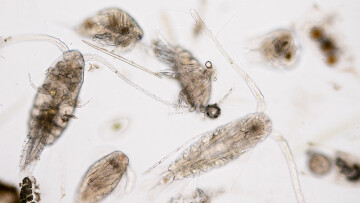Functional shifts in estuarine zooplankton in response to climate variability
1.10.2020

The article "Functional shifts in estuarine zooplankton in response to climate variability" has been published in Ecology and Evolution on 29 of September 2020 and can be found on this link: https://doi.org/10.1002/ece3.6793
Abstract
- Functional traits are becoming more common in the analysis of marine zooplankton community dynamics associated with environmental change. We used zooplankton groups with common functional properties to assess long‐term trends in the zooplankton caused by certain environmental conditions in a highly eutrophicated gulf.
- Time series of zooplankton traits have been collected since the 1960s in the Gulf of Riga, Baltic Sea, and were analyzed using a combination of multivariate methods (principal coordinate analysis) and generalized additive models.
- One of the most significant changes was the considerable increase in the amount of the zooplankton functional groups (FGR) in coastal springtime communities, and dominance shifts from more complex to simpler organism groups—cladocerans and rotifers.
- The results also show that functional trait organism complexity (body size) decreased considerably due to cladoceran and rotifer increase following elevated water temperature. Salinity and oxygen had negligible effects on the zooplankton community.
Photo: Copepod, Zooplankton (Adobe Stock)
Skribent:
Anna Jansson (Novia) Riina Klais‐Peets Evelina Grinienė Gunta Rubene Anna Semenova Aleksandra Lewandowska Jonna Engström‐Öst (Novia)